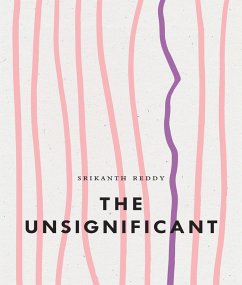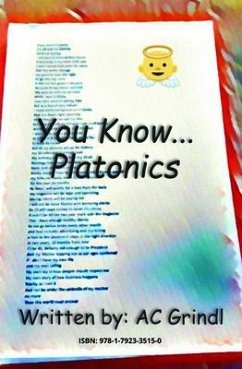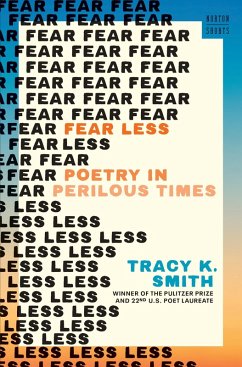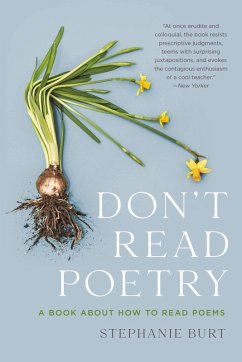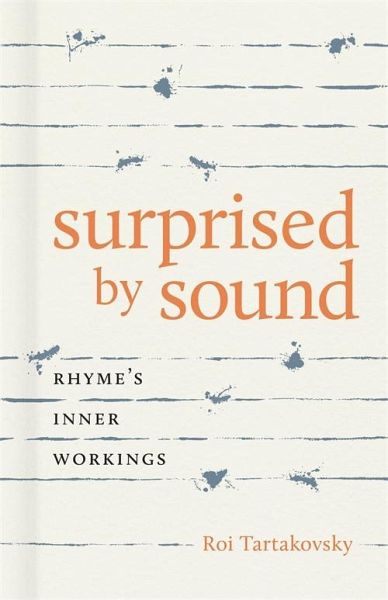
Surprised by Sound (eBook, ePUB)
Rhyme's Inner Workings
Versandkostenfrei!
Sofort per Download lieferbar
15,95 €
inkl. MwSt.
Weitere Ausgaben:

PAYBACK Punkte
8 °P sammeln!
In Surprised by Sound, Roi Tartakovsky shows that the power of rhyme endures well into the twenty-first century even though its exemplary usages may differ from traditional or expected forms. His work uncovers the mechanics of rhyme, revealing how and why it remains a vital part of poetry with connections to large questions about poetic freedom, cognitive and psychoanalytic theories, and the accidental aspects of language.As a contribution to studies of sound in poetry, Surprised by Sound takes on two central questions: First, what is it about the structure of rhyme that makes it such a potent...
In Surprised by Sound, Roi Tartakovsky shows that the power of rhyme endures well into the twenty-first century even though its exemplary usages may differ from traditional or expected forms. His work uncovers the mechanics of rhyme, revealing how and why it remains a vital part of poetry with connections to large questions about poetic freedom, cognitive and psychoanalytic theories, and the accidental aspects of language.
As a contribution to studies of sound in poetry, Surprised by Sound takes on two central questions: First, what is it about the structure of rhyme that makes it such a potent and ongoing source of poetic production and extrapoetic fascination? Second, how has rhyme changed and survived in the era of free verse, whose prototypical poetry is as hostile to poetic meter as it is to the artificial sound of rhyme, including the sound of rhythmic thumping at the end of every line? In response, Tartakovsky theorizes a new category of rhyme that he terms "sporadic." Since it is not systematized or expected, sporadic rhyme can be a single, strongly resounding rhyme used suddenly in a free verse poem. It can also be an internal rhyme in a villanelle or a few scattered rhymes unevenly distributed throughout a longer poem that nevertheless create a meaningful cluster of words. Examining usages across varied poetic traditions, Tartakovsky locates sporadic rhyme in sources ranging from a sixteenth-century sonnet to a nonsensical, practically unperformable piece by Gertrude Stein and a 2007 MoveOn.org ad in the New York Times.
With careful attention to the soundscapes of poems, Surprised by Sound demonstrates that rhyme's enduring value lies in its paradoxical and unstable nature as well as its capacity for creating poetic, cognitive, and psychic effects.
As a contribution to studies of sound in poetry, Surprised by Sound takes on two central questions: First, what is it about the structure of rhyme that makes it such a potent and ongoing source of poetic production and extrapoetic fascination? Second, how has rhyme changed and survived in the era of free verse, whose prototypical poetry is as hostile to poetic meter as it is to the artificial sound of rhyme, including the sound of rhythmic thumping at the end of every line? In response, Tartakovsky theorizes a new category of rhyme that he terms "sporadic." Since it is not systematized or expected, sporadic rhyme can be a single, strongly resounding rhyme used suddenly in a free verse poem. It can also be an internal rhyme in a villanelle or a few scattered rhymes unevenly distributed throughout a longer poem that nevertheless create a meaningful cluster of words. Examining usages across varied poetic traditions, Tartakovsky locates sporadic rhyme in sources ranging from a sixteenth-century sonnet to a nonsensical, practically unperformable piece by Gertrude Stein and a 2007 MoveOn.org ad in the New York Times.
With careful attention to the soundscapes of poems, Surprised by Sound demonstrates that rhyme's enduring value lies in its paradoxical and unstable nature as well as its capacity for creating poetic, cognitive, and psychic effects.
Dieser Download kann aus rechtlichen Gründen nur mit Rechnungsadresse in A, D ausgeliefert werden.




